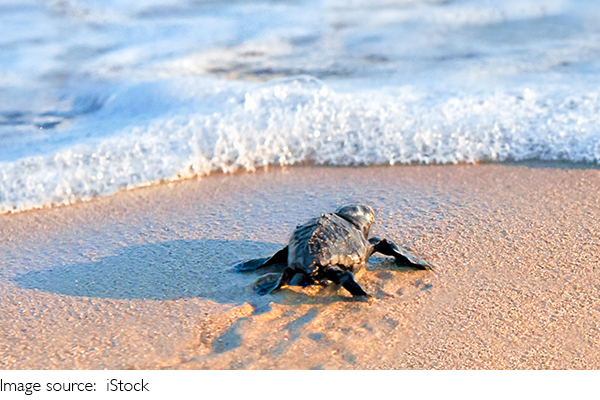Turtle Hibernation Tips

As winter approaches, it's important to know how to help our turtles through hibernation. This natural process can be tricky if we're not prepared, so making sure our turtles have everything they need is crucial for their health.
Whether you're a seasoned turtle owner or a beginner, here are five important things to keep in mind during your turtle's hibernation period.
1. Check the Temperature Regularly
We all know that temperature is key to our turtle's well-being, and this is especially true when they are hibernating. Before your turtle begins to hibernate, we need to ensure the environment is just right. If you plan to let your turtle hibernate in an outdoor area, make sure the temperature does not dip too low—turtles are vulnerable to extreme cold, and temperatures below freezing can be deadly.
If your turtle hibernates indoors, the room temperature should ideally stay between 50 to 60°F (10-15°C). It's important to avoid any sudden temperature fluctuations. Too much heat can cause premature waking, while too much cold can slow down their metabolism in a way that's harmful to their health.
2. Don't Wake Them Up Too Soon
One common mistake many of us make is waking our turtles too early from hibernation. During this time, turtles rely on their stored oil to survive, and disturbing them too soon can interrupt this natural process.
As a general rule, let your turtle hibernate for at least 3 to 4 months, depending on the species and your location. Keep an eye on the weather and their behavior—if you notice they're waking up earlier than expected, you may want to check the conditions to make sure everything is still within the optimal range.
3. Provide a Suitable Hibernation Spot
Choosing the right spot for your turtle to hibernate is essential for their health and safety. A hibernation spot should be dry, cool, and away from any sources of disturbance. If you are letting your turtle hibernate outside, make sure they have access to an area that mimics their natural habitat.
For indoor hibernation, place your turtle in a cool, quiet room away from direct sunlight or heavy traffic. A sturdy, well-ventilated container lined with dry bedding is a good idea to help your turtle stay insulated. It's also important to ensure the space is free of moisture, as damp conditions can promote mold growth, which is harmful to turtles.
4. Monitor Their Weight Before and During Hibernation
Before your turtle enters hibernation, it's crucial to monitor their weight. We should check that they are in a healthy, robust condition to handle the stress of hibernation. If your turtle is underweight or showing signs of illness, it's best to delay the hibernation process or consult a vet.
During hibernation, check the weight of your turtle occasionally, but avoid disturbing them too much. A slow, steady weight loss of around 1-2% per month is normal, but if they're losing too much weight, it could be a sign of health issues, and we should seek professional advice.
5. Ensure Hydration Before and After Hibernation
Hydration is just as important for our turtles during hibernation. Before they begin hibernating, make sure your turtle is well-hydrated. You can give them a bath in lukewarm water for 20-30 minutes to help them absorb moisture. This step will ensure they start hibernation in the best condition possible.
Once hibernation is over, don't immediately offer food. Instead, provide them with another lukewarm bath to help them rehydrate and encourage a slow and steady wake-up process. After they've fully rehydrated, you can start introducing food again.

Final Thoughts
Hibernation is a natural part of a turtle's life cycle, but as their caretakers, it's up to us to make sure they have the right conditions to thrive through it safely. By checking temperatures, choosing the right hibernation spot, and monitoring their health, we can help our turtles emerge from their winter rest healthy and ready for the warmer months.
Do you have any hibernation tips for your turtle? We'd love to hear your experiences and share more advice with fellow turtle owners. Keep your little shelled friends safe and sound through their winter sleep!


